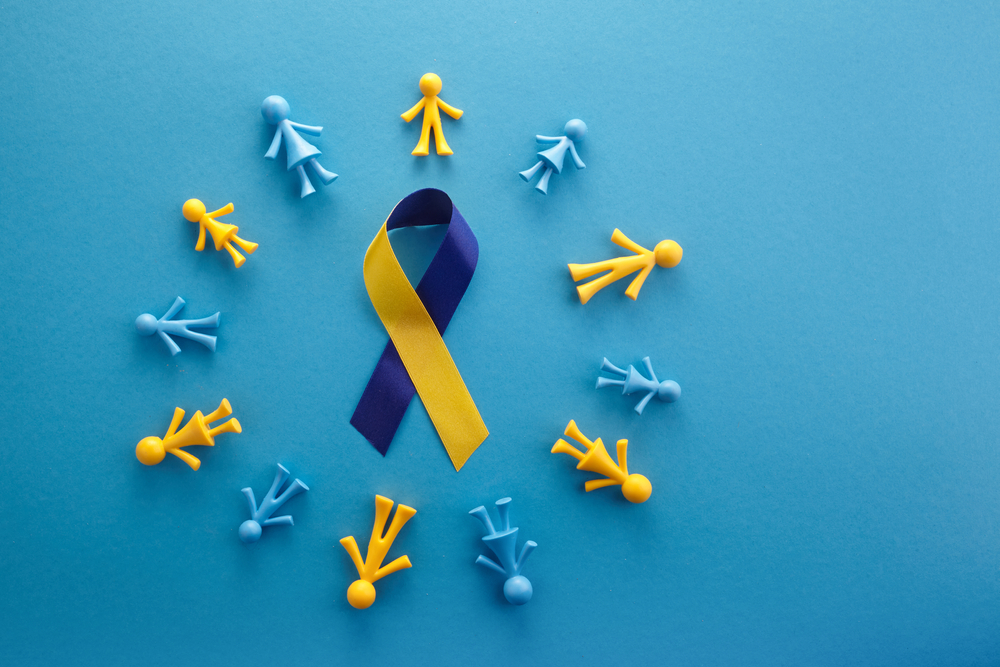


Down syndrome is the most common chromosomal condition. Approximately 1 in every 1100 babies in Australia will have Down syndrome, which means each year there are approximately 290 babies born with the condition.
World Down Syndrome Day, held on March 21st, is a international day of awareness which has been recognised by the United Nations since 2012. The day celebrates the lives and achievements of people with Down syndrome and raises awareness around the rights and inclusion of people with the condition around the world.
What is Down syndrome?
Down syndrome occurs at conception and is the most common genetic disability. It is caused when a person is born with an extra chromosome.
Down syndrome impacts intellectual development and some physical characteristics and aspects of physical health, however no two people are the same.
What is it like to have Down syndrome?
Everyone who has Down syndrome will have some level of intellectual disability. Every person has different skills and needs for support.
People with Down syndrome may have:
- Areas of strength and areas where they need support
- Some level of intellectual disability
- Some characteristic physical features
- Increased risk of some health conditions such as:
- Hearing and vision problems
- Thyroid problems
- Respiratory infections
- Congenital heart condition
- Increased risk of leukemia
- Gastrointestinal issues.
- Some developmental delays including those impacting speech and motor skills.
How is Down syndrome diagnosed?
There are two types of prenatal tests: screening tests and diagnostic tests. Screening tests can determine the likelihood of your baby having Down syndrome, and diagnostic tests can provide a definitive diagnosis based on genetic testing of cells.
Down syndrome myths
MYTH 1: People with Down syndrome have a short life expectancy.
FACT: The average life expectancy for people with Down syndrome has increased over the last 30 years, from less than 30 years of age to 60 years of age.
MYTH 2: Down syndrome babies won’t be born healthy.
FACT: There is an increased chance that some babies will be born with health concerns, however pregnancy is closely monitored and after birth, there are with regular check-ups with a paediatrician and GP. Not all babies with Down syndrome will experience all, or even any, of the health concerns listed above.
MYTH 3: Down syndrome children will be limited.
FACT: Children with Down syndrome have the ability to learn in the same way other kids can. However, some might need extra assistance and support to achieve milestones as their development may be slower.
MYTH 4: Those with Down syndrome will be reliant on their parents for the rest of their lives.
FACT: People with Down syndrome are able to live a full life as part of the community. With the right support, they may be able to live independently, be employed and participate in the community.




